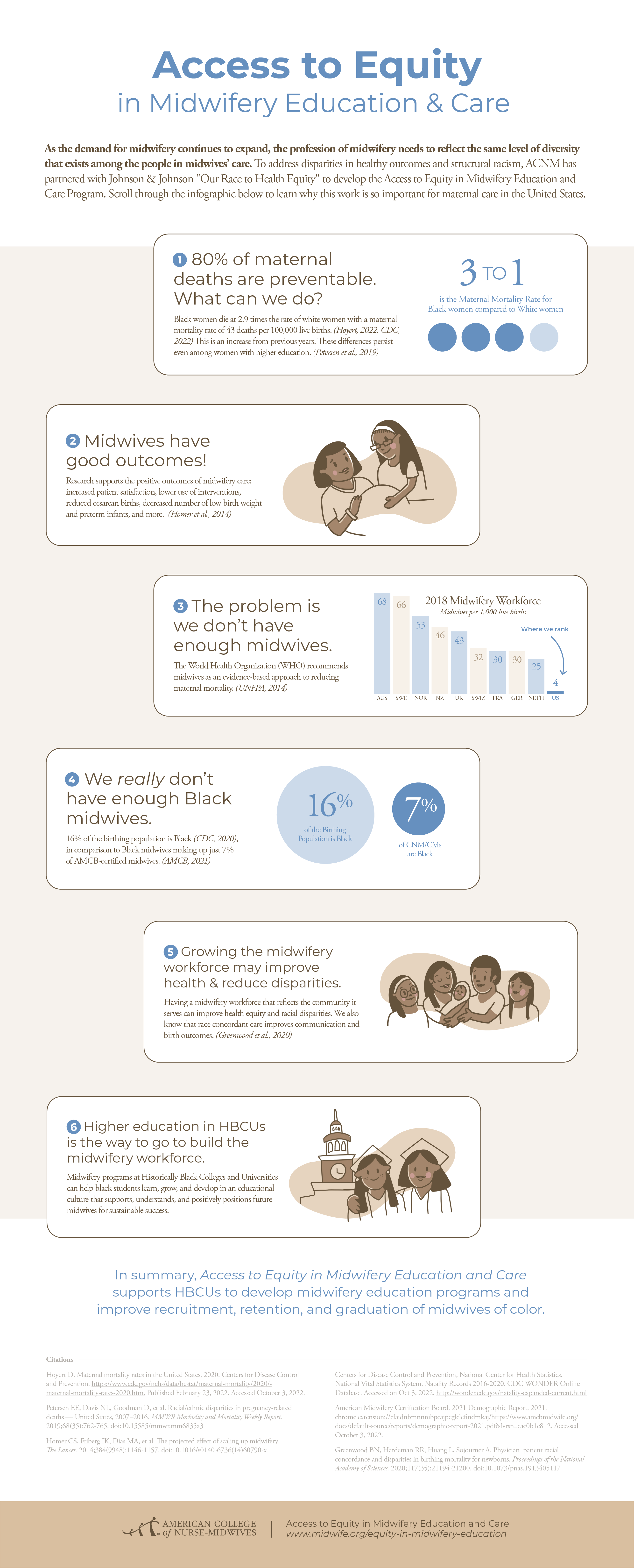Systematic racism plays a central role in health disparities. Increasing diversity in midwifery is instrumental in reducing bias in maternal healthcare because midwifery is relationship-based care. The midwifery model of care focuses on intentional and intimate relationships between providers and patients to achieve the best possible health outcomes.
Black midwives make up only 7% of the total Certified Nurse-Midwives/Certified Midwives in the US. Increasing the number of Black midwives can help to dismantle the vices that lead to high maternal death rates and negative health outcomes in the Black community. HBCUs would enable Black student midwives to learn, grow, and develop in an educational culture that supports, understands, and positively positions future leaders in midwifery and maternal health for sustainable success. Ultimately, educating midwives of color at HBCUs to provide care to BIPOC communities can begin to improve maternal-child outcomes.
Hear more about the impact of Black midwifery in the US and ways to expand midwifery education by viewing our informational webinars on our online learning platform
Why We Need More Midwives of Color Informational Session 1
Starting a Midwifery Program at an HBCU Informational Session


